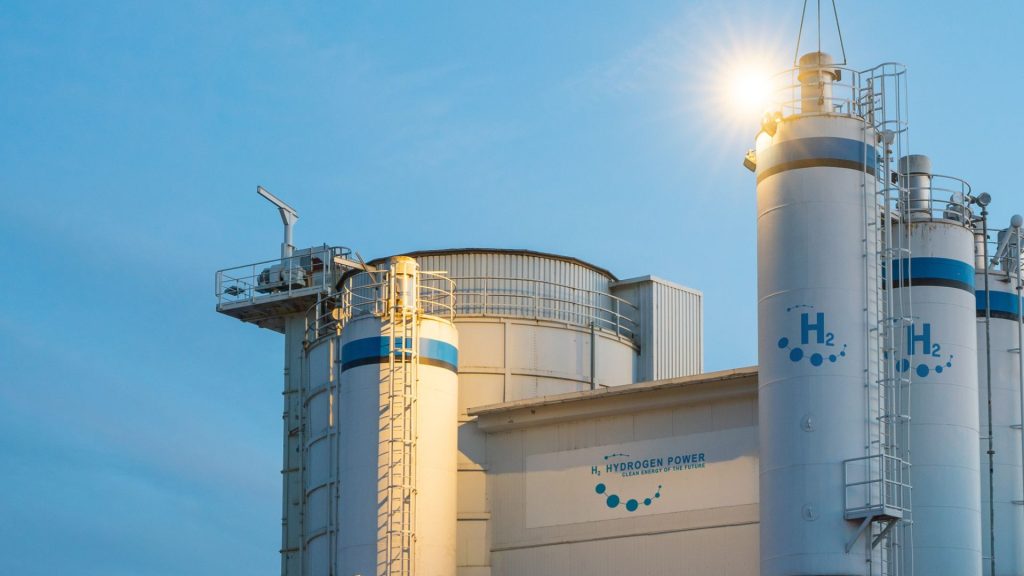
A huge reserve of energy under our feet: the largest reserves of hydrogen found in France
Nowadays, the fight against global warming has come to the fore. Humanity is actively striving to switch to clean energy, and, apparently, an important step in this direction has been taken in France.
In the Lorraine region, near the border of France and Germany, a group of scientists recently made a revolutionary discovery in the depths of the earth. In this area, previously known for coal mining, they sent a probe a kilometer below the Earth’s crust. What they found surprised them: large bubbles of hydrogen gas in the water column, indicating a potentially huge deposit of natural hydrogen, The New York Times reports.
Global Interest in Natural Hydrogen: New Opportunities for Clean Energy
Natural hydrogen, or “white hydrogen”, is considered one of the cleanest fuels. When it burns, only water is released, making it a source of energy without emitting carbon dioxide. Jacques Pironon, a senior researcher and professor at the University of Lorraine, is confident that they have identified one of the globe’s most substantial reserves of natural hydrogen.
The discovery has caused significant excitement in France, especially given the country’s government’s ambition to become a leader in clean hydrogen technology in Europe. However, questions remain about the size of the field and the best methods for extracting the gas.
In Lorraine, experts estimate that there could be between 46 million and 260 million tons of natural hydrogen beneath the old coal mines. This is a huge amount, considering that worldwide yearly production of hydrogen totals approximately 70 million tons.
Natural hydrogen reserves have also been discovered in the US, Australia, Africa and other parts of Europe. In the past, these findings were often ignored due to low demand.
Interest in natural hydrogen increased after an accidental discovery in Mali in 1987. During an accidental fire of a cigarette in a water well, natural hydrogen was discovered in the water. This well now supplies local shops and homes.

Julien Moulin, head of clean energy company Française De l’Énergie, which is working on white hydrogen projects, notes a shift in focus from oil and gas to the study of natural hydrogen. His company, which originally focused on converting methane gas into clean energy, is now ramping up its efforts in hydrogen exploration and production.
There is a growing general interest in natural hydrogen in the clean fuel industry, with companies around the world looking for such deposits. However, questions remain about the viability and cost-effectiveness of natural hydrogen production and use.
Hydrogen technologies: the path to a clean future of energy and industry
Natural hydrogen is pivotal in the strategies of numerous countries aiming to diminish carbon emissions. and transition to sustainable development. Interest in this type of fuel has increased significantly in recent years as it offers a potentially waste-free solution to humanity’s energy needs.
One of the main advantages of natural hydrogen is its environmental friendliness. When burned, it emits only water, making it an ideal choice for substituting conventional fossil fuels while reducing the level of greenhouse gasses in the atmosphere. This is especially important in the context of worldwide endeavors to address climate change and restrict global warming.

Hydrogen-based technologies are already at the stage of active development and implementation in various regions of the world. Some countries have already built pilot projects for the production and use of hydrogen in various sectors of the economy, from energy and transport to industry and agriculture.
However, despite the potential of natural hydrogen, there are technological and economic challenges. It is important to develop efficient methods for its extraction and use to make it competitive with traditional energy resources. There is also a need to improve the infrastructure for storing and transporting hydrogen, which will be a key aspect of large-scale deployment of this technology in the future.
In conclusion, natural hydrogen stands as a promising solution within the energy sector, offering substantial potential to diminish humanity’s carbon footprint and secure a sustainable energy future for the planet. This necessitates coordinated action from governmental bodies, academia and industry to realize its full potential.